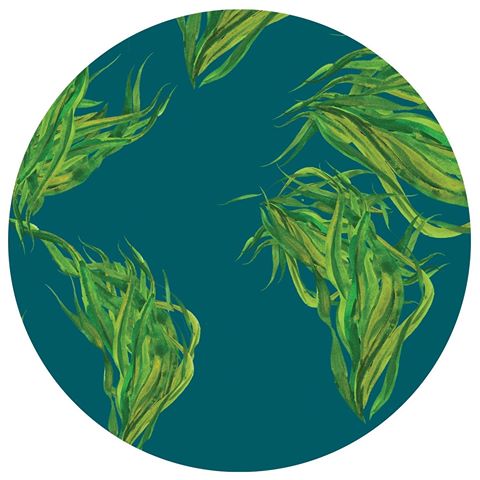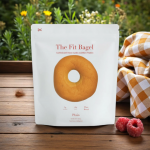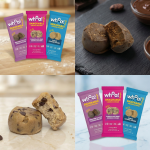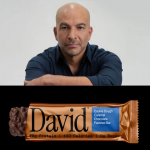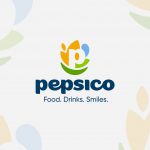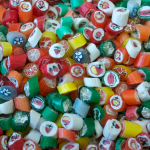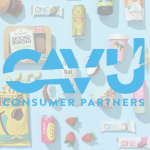‘Keeping Our Mission as the North Star’: Atlantic Sea Farms Unveils Rebrand, Expands Distribution
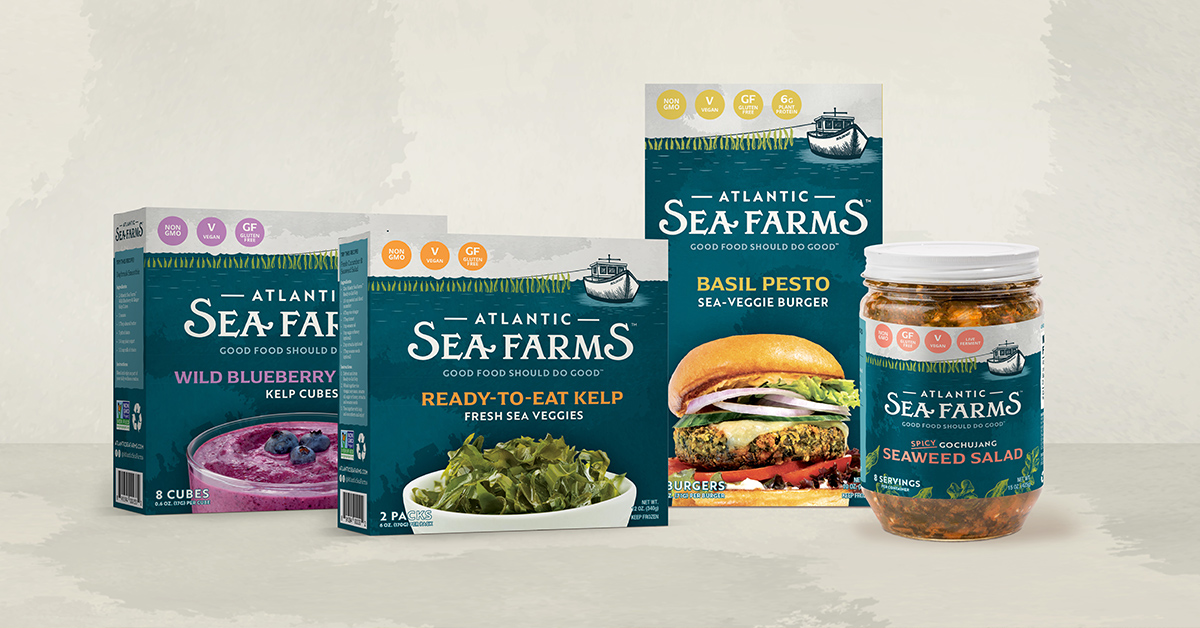
Seaweed aquaculture company Atlantic Sea Farms (ASF) has unveiled a fresh new look across its retail and wholesale products, seeking to forge a stronger connection between its partner farmers and consumers.
The Biddeford, Maine-based business began in 2009 to perfect the kelp cultivation process. However, in 2018, ASF pivoted to focus on developing a commercial-scale fresh kelp business in the U.S. through three separate business arms – CPG, food service and an ingredient supply program.
“The act of regenerative kelp farming, as well as how our products are enjoyed at home, in addition to themes like ocean health, climate action, and consumer health were all really exciting reasons people were choosing Atlantic Sea Farms, but we needed to communicate it better on our packaging,” Jesse Baines, CMO of ASF, told NOSH in an email. “It was time to visually connect our [CPG] products and brand with the good work that regenerative kelp farming is doing here in the U.S.”
The sea vegetable has been gaining popularity among CPG food brands and consumers in the U.S. for its multitude of positive attributes including its ability to absorb carbon from the air in its natural form. In fact, kelp was named one of Whole Foods Market’s (WFM) top 10 food trends of 2023 largely due to its importance in the age of climate consciousness.
ASF’s updated packaging, created in collaboration with designer Laura Hansen, better highlights product use cases and seaweed’s benefits for both people and the planet, according to a press release. Additionally, scannable QR codes lead to videos and interviews that bring consumers into the regenerative kelp farming action.
This season, the brand will be working with 40 partner farmers from Maine, Rhode Island and Alaska, up from 30 partner farmers in September 2022. ASF has the largest kelp cultivation center in the western hemisphere where it propagates and incubates all of its own kelp seeds and distributes them to its partner farmers free of charge.
The company currently produces nine SKUs across four categories, from Sea Veggie Burgers to Fermented Seaweed Salad to Kelp Cubes for smoothies. The products are now available in nearly 3,000 doors nationwide, including Wegmans, WFM, Sprouts, Fresh Thyme and Hannaford, as well as local and regional specialty grocers.
ASF also sells kelp to restaurants across the country and supplies to other brands at scale such as Navitas, Seacharrones and The Plant Based Seafood Company.
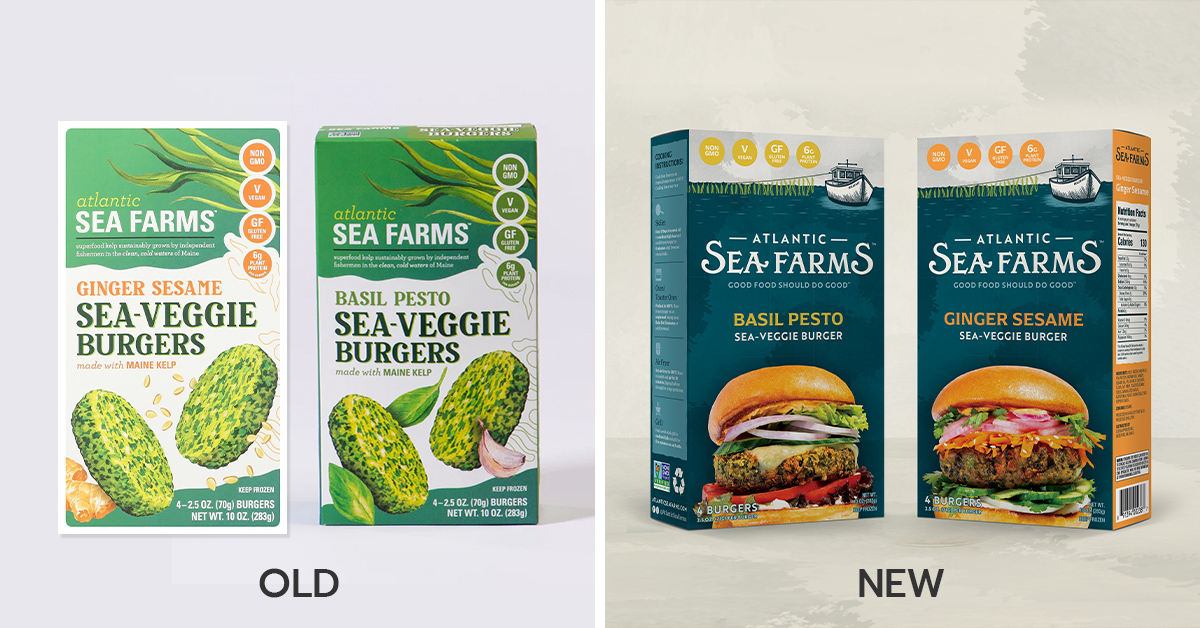
After launching in select Whole Foods Market stores in January, the brand’s Sea Veggie Burgers – available in Ginger Sesame and Basil Pesto varieties – will now expand distribution to more locations this fall, according to Baines. In some regions, the natural foods retailer already carries ASF’s jarred Sea Chi Kelp Kimchi, Fermented Seaweed Salad and Spicy Gochujang Seaweed Salad.
In stores, ASF competes with New York-based Akua, which also produces kelp-based burgers. The brand’s 3-SKU line is available in more than 900 stores including Earth Fare, Erewhon and Mom’s Organic Market, among others. To attract new shoppers to its own kelp products, Akua in June joined forces with beloved cartoon character Spongebob Squarepants to introduce a kid-friendly version of its burger, dubbed the Kelp Patty Slider.
Concurrent with the rollout of its new packaging, ASF has launched an updated website designed to provide consumers with a deeper connection to the individuals farming the food and taking climate action. According to Baines, the new site “[meets] people where they’re at on their journey to discovering domestically grown kelp and ensures that [ASF] is a go-to and trusted source of information.”
In June, ASF brought on former Stonewall Kitchen COO Dean Frost as its new VP of operations. Atlantic’s CPG items now account for approximately 50% of sales and Baines said having Frost’s experience in retail has already “proven a great strategy.”
The global commercial seaweed market is projected to grow at a CAGR of 7.5%, reaching $24.92 billion by 2028, according to market researcher Fortune Business Insights, which also noted currently much of production is going towards animal feed, pharmaceuticals, agriculture and cosmetics. In 2020, Asia Pacific accounted for $10.73 billion of the $14.11 total sales.
“We are working every day to ensure that every stakeholder along our value chain succeeds, from our partner farmers and the working waterfront communities they call home to the consumers feeding their families,” said Baines. “It’s not just about growth, it’s about keeping our mission as the north star, guiding this entirely new industry in the U.S. to a healthy and prosperous future.”

